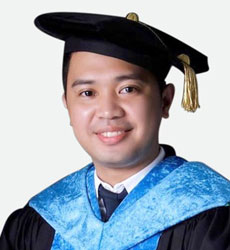Read this in The Manila Times digital edition.
WITH close to 200 languages spoken all over the country (based on many different counts), the Philippines has such a large number of languages that the number of Filipino linguists documenting these languages might never be enough. Most linguistic studies done in the Philippines are in the realm of applied linguistics, but this is not surprising because there are many real-world language problems in developing countries like the Philippines. Actually, studies on (Philippine) English are more common among Filipino linguists than those on Philippine indigenous languages. I could only think of four institutions that are leading this endeavor of documenting and studying Philippine indigenous languages. The Summer Institute of Linguistics (SIL), associated with printing the Bible in local languages, is also doing language documentation by many foreign linguists. There is also the Linguistic Society of the Philippines (LSP), the premier national organization of linguists in the Philippines, with several activities and events supporting studies of Philippine indigenous languages. One would expect the University of the Philippines to be very active in this endeavor as well, and indeed the Diliman Department of Linguistics is. And then there's De La Salle University (DLSU), also highly involved in applied linguistics, and the university's Department of English and Applied Linguistics is headed by Dr. Shirley Dita, who has been working on Philippine languages since earning her doctorate on Ibanag grammar, teaching the grammar of Philippine languages and supervising others to do the same. In fact, the current vice chairman, Dr. Philip Rentillo, was supervised by Dr. Dita for his dissertation on Aklanon dialects.
But the Japanese took a special interest in Philippine indigenous languages. There are many Japanese linguists who have done important work on Philippine indigenous languages. There is Professor Emeritus Masayoshi Shibtani of Rice University (Houston, the United States) and also Kobe University (Japan). He actually did his PhD in Linguistics at the University of California at Berkeley (the United States) around the same time as the late Br. Andrew Gonzalez, former Department of Education, Culture, and Sports (DECS) secretary and DLSU president, was doing his at the same university. I would like to believe this encounter between the two began Prof. Shibatani's interest in Philippine languages and other Austronesian languages, the bigger branch to which Philippine languages belong. Prof. Shibatani wrote a very important paper on voice in Philippine languages, published in 1988, and he is also an honorary member of the LSP.
Continue reading with one of these options:
Ad-free access
P 80 per month
(billed annually at P 960)
- Unlimited ad-free access to website articles
- Limited offer: Subscribe today and get digital edition access for free (accessible with up to 3 devices)


